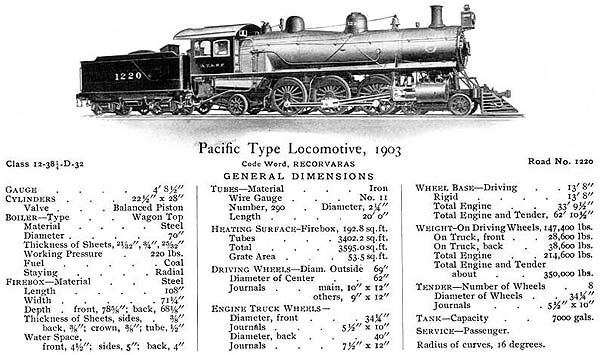|
The policy which has characterized the Santa Fe during recent years, toward improvements in locomotive construction, has been a most liberal one. Realizing the advantages possessed by the balanced compound locomotive, the road in 1903, ordered from the Baldwin Works four Atlantic type engines constructed on this principle. Mr. Kendrick was chiefly responsible for the introduction of these engines, and he has since taken a leading part in their development and successful operation; the Santa Fe having more balanced compound locomotives in use than any other railway in the United States. The number built to date for this road is 137. Of these ninety-six are Atlantic type engines which are working through express traffic between Chicago and La Junta, Colorado. The remaining forty-one are of the Pacific type, and are used on the mountain divisions of the system. In order to keep the wheelbase of the latter engines within reasonable limits, all the pistons are coupled to the second driving axle. As the cylinders are all in the same horizontal plane, the inside main rods are built with a loop which spans the leading driving axle. The successful performance of the balanced compounds on the Santa Fe has attracted wide attention and has resulted in the extensive use of similar engines on other roads. The Atlantic type engines have made some particularly fine runs, and have demonstrated their ability, when handling heavy trains, to maintain high horse-power and sustained speed. An illustration and description of one of the Atlantic type engines, which was exhibited at the St. Louis Exposition is presented on page 23 (below), while the Pacific type is illustrated on page 25 (below). The majority of the latter class are equipped for burning oil.
In 1903, previous to the building of the balanced compound Pacific type locomotives, twenty-six engines of similar type, having single-expansion cylinders with piston valves, were constructed at the Baldwin Locomotive Works. One of these engines is illustrated on the opposite page (above). |









